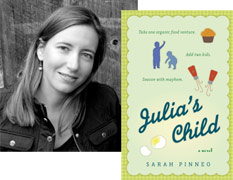by Stina Lindenblatt @StinaLL
You’ve finished the final edits to your manuscript, and your query has
garnered great feedback. Now you’re ready to query.
Or are you?
You’ve identified your initial list of agents you want to query, and
they all represent your genre. Except, how do you know if these are the right agents
for YOU?
Every year, hundreds of writers land representation with agents. And a
year later, many of these professional relationships end. Some writers fire
their agents. And some agents, to the surprise of the writer, fire their
client. Reasons for these terminated relationships vary. Many could have been
avoided with prior research.
So, how do you learn more about your potential dream agent without
asking the FBI to do a background search (which they won’t do unless said
literary agent is on the FBI’s most wanted list)? You stalk them*. But I don’t
mean “stalk” them on Twitter two days before you query them. That’s too late.
You need to start several weeks in advance, sooner if possible.
Here’s why.
Two weeks ago, an agent (Agent #1) tweeted that she was interested in
New Adult books. She explained what she was specifically looking for. This is
great information to know if you’re querying a New Adult novel (or will be),
since it’s not mentioned on her website.
Agent #2 read this tweet and responded. He complained that writers are
asking him about this category at conferences. It was obvious from his tweet
that he has low opinion of the category. Good to know if you’re writing YA (which
he represents) and NA books. Now you know not to query him if you want an agent
who will represent all your books.
Agent #1 replied and explained that she didn’t get the category, either,
but she was willing to check it out.
Red Flag #1
Why would you want an agent who doesn’t “get” your genre? How would she
be the best advocate for it? That’s like letting a surgeon who doesn’t “get”
the function of your pancreas perform surgery on it. You want someone who not
only gets your genre, she understands what criteria readers expect to see.
Now, if you really like this agent, because you’ve “stalked” her for a
while, and you decide to query her, the above information is important. If she
offers representation, you can ask her what books she’s read in your genre and
what she liked about them. If she has only read two, you’ve got a problem. Also,
make sure she does understand the genre. For example, if you queried her for
your NA novel and she tells you NA is really YA erotica, then you need to keep
looking. This is not the right agent for you. She’s clueless about the genre.
Or, you might not care either way and decide to sign with her. But at
least you’ve made an informed decision.
Let’s get back to the Twitter conversation between the two agents.
Agent #2 tweeted back that he hoped Agent #1 enjoyed the porn that would
now fill her inbox.
Red Flag #2
I have no idea how Agent #1 felt about the condescending tweet, but it
upset the individual who emailed me the conversation. It showed a lack of respect
toward a colleague in the industry. Plus Agent #2 was miles out of the football
stadium when he referred to New Adult stories as porn. What is ironic is that his
attitude mirrors those of individuals who try to impose book bans on certain
children’s and Young Adult books, and this includes some of his clients' books.
For some writers, the agent’s comments aren’t an issue. But for those individuals
who don’t tolerate this level of disrespect and close-mindedness, it’s best to delete
him from your list. He might not be the best agent for you, because his tweets
could be an indication of how he treats his clients and others in the industry.
If you decide to query him, you would do well to check if any of his
clients have left him and find out why. The more you know about the agent
before you make a decision to sign with him (should he offer you
representation), the more likely your client-agent relationship will be long
term.
As you can see from the conversation between the two agents, it’s
important to start your agent research early. Otherwise, you’ll miss vital
information that could impact you in the long term and have a negative (or
positive) effect on your writing career.
Are you following agents through any social media sites? What is your
primary reason for doing so?
*Stalking in this sense means the legal kind done
through social networking. I’m not referring the kind of stalking that will put
you on the NYPD’s radar and land you in jail.
I hope this
post is a good reminder why it’s important to filter your thoughts when using
social media sites. You don’t want to say something that could damage your reputation.
Stina
Lindenblatt @StinaLL writes young adult and new
adult novels. In her spare time, she’s a photographer and blogging addict, and
can be found hanging out on her blog.





